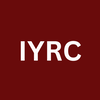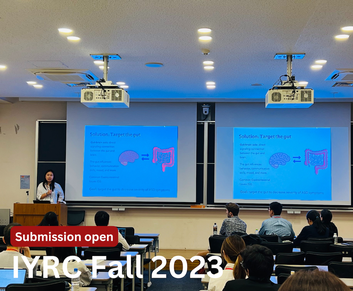IYRC 2021 events At a Glance
|
SPEAKERS
We are proud to have prominent leaders and innovators in global health speak on diverse topics. |
PRESENTATIONS
Students present their research, case study analyses, narratives, and community projects. |
NETWORKING
Students have opportunities to interact and network with others from diverse backgrounds around the world. |
|
Research
Students can submit their original academic research for an oral presentation and for publication in our conference proceedings. |
Community Projects
Students can present their original initiatives to improve their communities. |
|
Case Studies
Students compete in teams during the conference to analyze a global health topic, write a report, and deliver a presentation. Sign up here! |
Narrative Presentations
Students capture stories in a medical context by sharing patient and community voices. |
|
Eunoia Digital Publication
A medium run by GHLC/ IYRC student Alyssa Tang to unite students with a passion for global health: www.eunoiaglobalhealth.com |
Speakers
We are proud to have prominent leaders and innovators speak on diverse topics. |
Mission
|
Our mission is to provide an avenue for high school researchers to present their breakthroughs with their peers and the wider community. We strive to build an international network of driven students, mentors, and leaders in research. The IYRC is interdisciplinary by design: our conference allows for collaboration and connection between fields.
The IYRC encourages students to tackle issues in their local community by conducting evidence-based, cost-effective interventions that are impactful, sustainable, and reproducible initiatives. The conference hopes to help students make a difference and grow as civically minded leaders for the future. Learning outcomes are bidirectional, fostering interdisciplinary and intergenerational collaboration between mentees and mentors. |
ProjectsThe International Young Researchers' Conference has had many amazing projects over the years that were able to support individuals in diverse communities. Each year, we are greatly impressed with the projects that our students conduct. Students lead an evidenced-based and cost-effective project to tackle an issue in their local community through an impactful, sustainable, and reproducible initiative. They are paired with current university students who act as project mentors to help guide students. The topics and interventions vary widely from fundraising, volunteering, and raising awareness on health issues to hosting workshops, creating programs, and improving health access for others. Students then produce a well-documented report about the intervention.
To advance community care, community members must not only just perform research but also communicate this effectively with their peers and the public. The published reports often give students their first experience of the review process. This offers students the chance to get recognition for work that may otherwise go unpublished. It also helps students develop their skills in academic writing as a stepping stone for future endeavors. Case Study CompetitionThe case study competition places students on teams to write a report evaluating a global health issue and give a presentation at the conference. Teams are randomly assigned, and students are paired with others from different schools. Past topics have included influenza vaccines, caregiving, rural health, and mental health in the age of Covid-19.
Case Study Components:
|
Narrative PresentationsThe Narrative Presentations expand to the medical humanities to understand and share the stories of others. Students can compete in 3 categories: Writing (nonfiction and realistic fiction) and Video. The goal is to capture the story of others in a health/ medical/ public health context. Examples include creating a documentary about family experiences with a medical condition such as cancer or mental health, or capturing the voices of those impacted. Written pieces will be compiled for a book to be published. Videos will be available to be viewed.
The topic: Students can choose any health topic. This can be an affliction you might associate with a hospital or even issues related to social determinants of health. It can be related to physical, mental, or social wellbeing. The categories: Students will be able to participate in 3 different areas. Nonfiction writing, Realistic Fiction writing, and Video (nonfiction).
Narrative Presentations Components:
|
Vision ScholarsA select group of returning IYRC students can become Vision Scholars. Vision Scholars work with medical students to directly influence IYRC programming. They facilitate the student experience and provide insight into curriculum that would appeal to students. Students check-in with their peers and act as a resource for other students in the program. Vision Scholars are recognized with an honor at one of the conferences.
Vision Scholar Components:
|
Eunoia Digital PublicationYouth Perspectives on Global Health Issues
Run by GHLC/ IYRC student Alyssa Tang, Eunoia is a digital publication that unites students with a passion for global health, providing a platform for youth to educate others on diseases, raise awareness on health issues, and bridge the gap on disparities. The name Eunoia is derived from the Greek word, εὔνοια, meaning "beautiful thinking" or "well minded." Using a creative multidisciplinary approach, Eunoia features scientific articles, editorials, interviews, personal narratives, visual arts, poetry, podcasts, and video. Eunoia Components:
|




